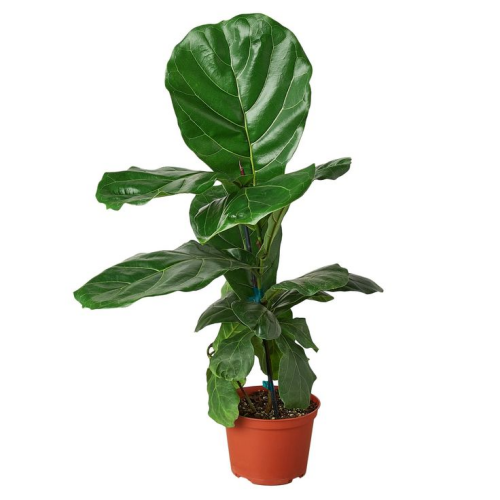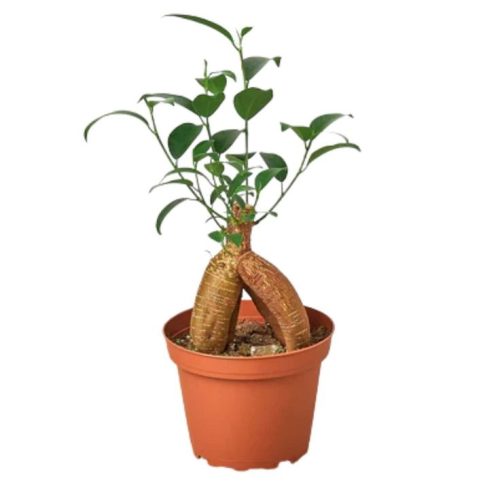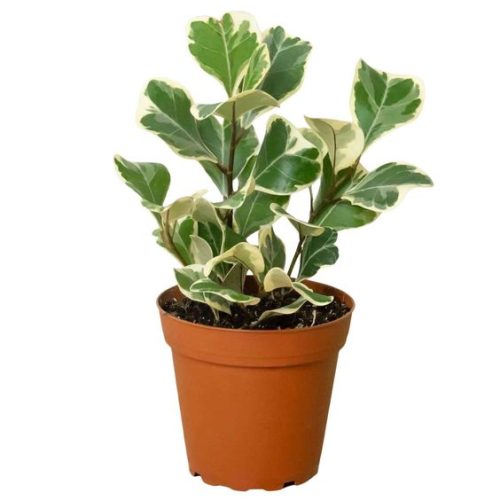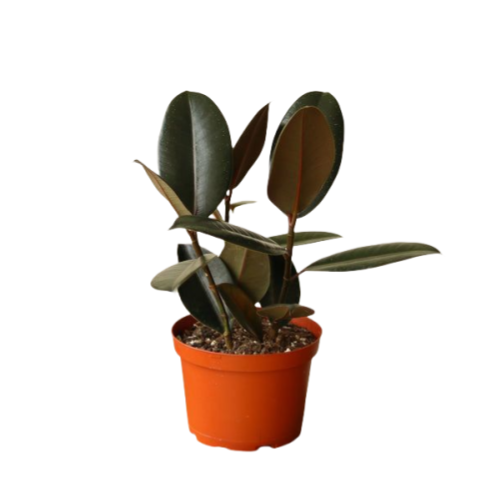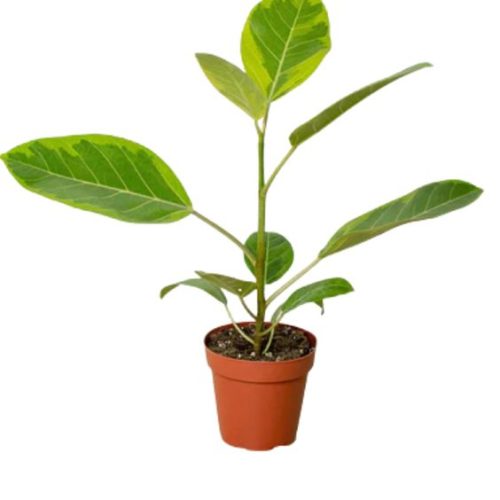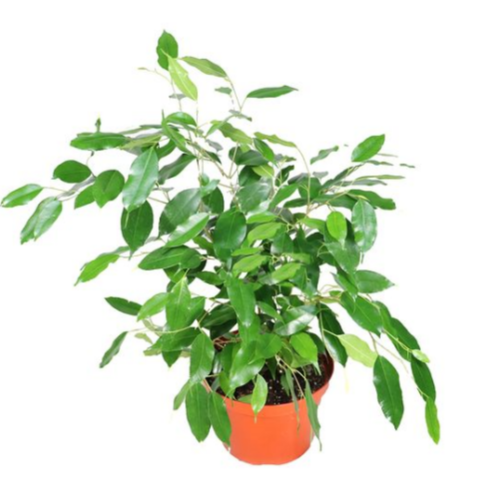Ficus Elastica Tineke
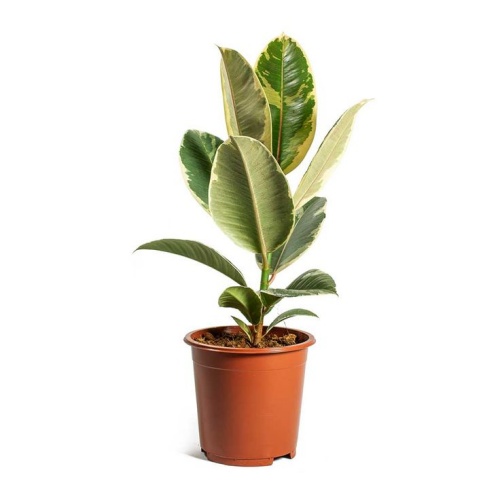
- Botanical Name: Ficus elastica 'Tineke'
- Family Name: Moraceae
- Stems: 2-10 Feet
- Temperature: 10°C~35°C
- Others: Warm ,humid environments, tolerates shade, not cold-resistant.
Overview
Product Description
Tropical Elegance: Ficus Elastica Tineke Mastery
Ficus Elastica Tineke: Cultivation and Care for the Tropical Interior
The Gem of the Tropical Rainforest
Ficus Elastica Tineke, this tropical evergreen tree hailing from Southeast Asia and known by the unique name of Indian Rubber Tree ‘Tineke’, is native to regions such as India, Nepal, Bhutan, Myanmar, Malaysia, and Indonesia. As a member of the Moraceae family, it can grow into a towering tree in tropical rainforests, while indoors as a foliage plant, it typically maintains a smaller stature.
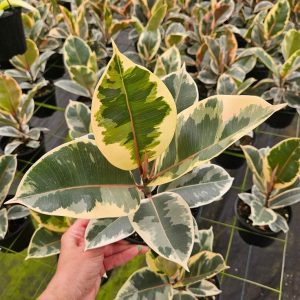
Ficus Elastica Tineke
Balancing Light and Water
Light and Water are key to the growth of Ficus Elastica Tineke. It prefers bright indirect light; too much direct sunlight can scorch the leaves, while insufficient light can lead to leggy growth, affecting its ornamental value. Water when the top few inches of soil dry out during the growing season, avoiding overwatering that can lead to root rot. Reduce watering during the slower growth of winter.
Simulating Tropical Climates
Temperature and Humidity are crucial for the growth of Ficus Elastica Tineke. The ideal growth temperature range is 60-85°F (15-29°C), and it should be kept away from vents or air conditioning units. It thrives in average to high humidity environments, and if your home is dry, especially in winter, consider using a humidifier or placing a tray of water with pebbles at the base of the pot.
Care Essentialsg
Soil and Repotting are the foundations of healthy growth for Ficus Elastica Tineke. Use well-draining potting mix, preferably one designed specifically for indoor plants. Apply top dressing fertilizer annually and repot every few years to refresh the soil and provide more room for growth. Fertilize monthly with high-nitrogen plant food during the growing season (spring and summer). Do not fertilize during the fall and winter seasons. Additionally, prune in spring to maintain the size and shape of the plant, using clean, sharp scissors or pruning shears. Regularly wipe the leaves with a damp cloth to remove dust and maintain their glossy appearance.
Showcasing the Splendor: The Ficus Elastica Tineke’s Majestic Form
The Ficus Elastica Tineke, a garden variety treasured for its stunning variegated patterns, is a non-hardy evergreen tree native to India and belonging to the Moraceae family. Its leaves boast a beautiful green hue, surrounded by yellow or cream margins, with hints of pink, thriving in warm temperatures and moderate humidity.
The Colorful Canvas: Factors Behind the Leaf Hue Transformation
The leaf color variations of the Ficus Elastica Tineke are influenced by a spectrum of factors. Light is a key player in maintaining its vibrant colors. This plant craves bright, indirect light to keep its华丽的 colors. If your Ficus Tineke is not receiving enough light, its leaves may lose their contrast and turn predominantly green. Conversely, if leaves start to show brown spots, they might be getting too much direct sunlight. Additionally, temperature and humidity also play a role in leaf color. The ideal temperature range is 60°F to 75°F (about 15°C to 24°C), and it requires average humidity. If the environment is too dry or experiences drastic temperature changes, it can lead to shifts in leaf color.
The Art of Foliage: A Professional Description
The Ficus Elastica Tineke’s leaves are broad, leathery, and glossy, with an oval shape and a pointed tip. The leaves measure about 8 to 12 inches (20 to 30 cm) in length and about 4 inches (10 cm) in width. These light green, glossy leaves boast cream-colored edges with a base of pink and red. The Ficus Tineke’s leaf sheath initially presents as a red-pinkish spear, and as the sheath unfolds, it reveals the green and cream-colored leaves, with the underside of the leaves being light green or pinkish.





